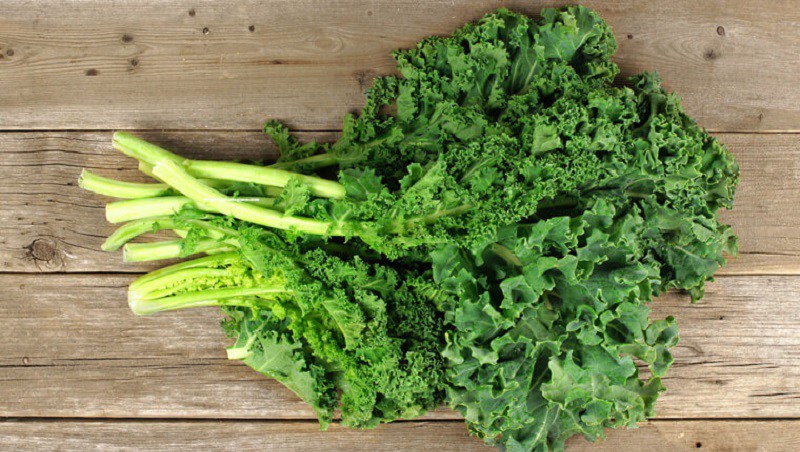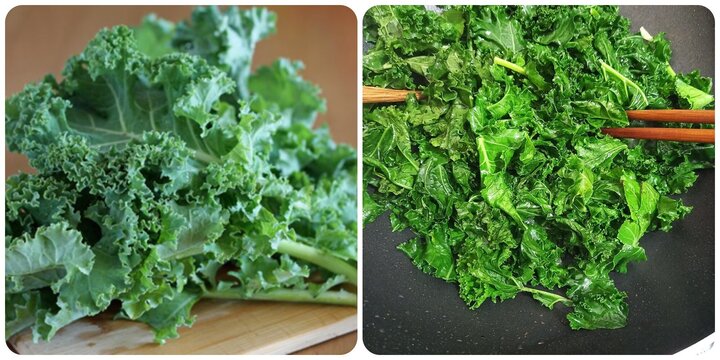Kale is one of the vegetables with a higher calcium content than milk, reaching about 90 grams per serving. In particular, kale is also known for its better calcium absorption ability compared to milk.
A vegetable with more calcium than milk and eggs
Similar to spinach and broccoli, kale is also a rich source of vitamin K. Vitamin K plays an important role in the formation of osteocalcin, a necessary factor for calcium accumulation in bones, supporting strong bone health.
According to VietNamNet, kale has been identified as a vegetable that contains more calcium than milk and eggs. Each 100g of kale provides about 250mg of calcium, a significant amount compared to the calcium content in milk, which is 110mg, and eggs, which is 50mg.

Kale belongs to the same family as cabbage, cauliflower, Brussels sprouts, and kale. The distinctive feature of kale is its fresh green and purple leaves, which helps distinguish it from other vegetables in the market.
What’s special is that kale has the ability to grow strong even in winter and can even become tastier and sweeter. This vegetable is becoming increasingly popular not only in Europe but also in many regions around the world.
Kale is not only a rich source of calcium but also brings many excellent health benefits:
-
Rich in nutrients: Kale is a rich source of nutrients, providing various vitamins such as A, K, C, B6, thiamine, riboflavin, and niacin; minerals including manganese, calcium, potassium, copper, magnesium, iron, and phosphorus; fiber, omega-3 fatty acids, and antioxidants.
-
Reduces cholesterol, reduces the risk of heart disease: Kale contains bile acid sequestrants, which help reduce the total amount of cholesterol in the body, thereby reducing the risk of heart disease.
-
Abundant source of vitamin K: The vitamin K in kale helps in blood clotting and prevents heart disease and osteoporosis.
-
Antioxidants: Kale contains antioxidants such as quercetin and kaempferol, which help control oxidative damage, protect against chronic diseases, and aging.
-
Builds and maintains bone density: Vitamin K1 in kale helps activate proteins that can bind to calcium, playing an important role in building and maintaining bone density, reducing the risk of fractures.
Adding kale to your diet can bring significant health benefits.

What are some delicious dishes with kale?
Kale juice. Drinking kale juice helps improve skin, promote relaxation, and provide better sleep.Kale salad. With this recipe, you can add various optional vegetables such as avocado, tomatoes, cucumbers, etc. You can also add a little olive oil, salt, and pepper to enhance the flavor of the dish.Sautéed kale. However, you should not sauté the vegetable for too long, preferably not more than 5 minutes.Steamed kale.Crispy grilled kale snacks.


































